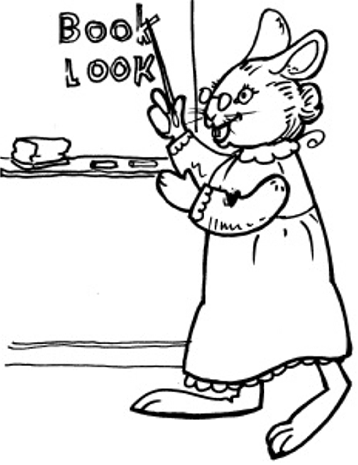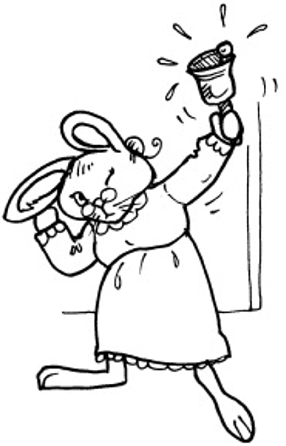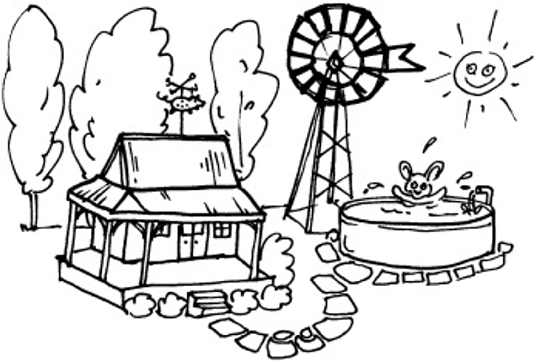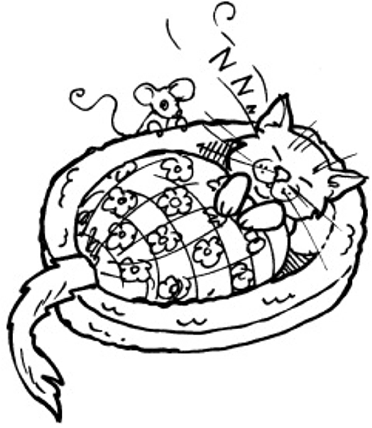| << Chapter < Page | Chapter >> Page > |
| LO 2.2 | LO 2.6 |

to school.
1. Did Bobtail read his book? .................................................................................. 2. Did Bobtail play outside? ....................................................................................
3. Did Bobtail fall asleep? .......................................................................................
4. Did Bobtail add his numbers? .............................................................................
5. Did Bobtail run away? .........................................................................................
6. Did Bobtail write his story? ................................................................................
7. Did Bobtail catch the big black dog? ..................................................................
8. Did Bobtail spell his words? ...............................................................................
good; bad; tall; obedient; tired; naughty.
| LO 1.1.5 | LO 2.1 |

hear a mistake. Say why it is wrong.
Bobtail went to school every day.
He went with his brothers,
Hopper, Flopper and Mop.
They added their words.
They wrote their books.
They spelt their stories.
They read their numbers.
Miss Bun-Bun was glad.
Mummy Bunny was glad.
Daddy Bunny was glad.
Their bunnies were clever.
Their bunnies were good.
Yes or No? Give a reason.
| LO 1.1.7 | LO 3.2.2 | LO 3.2.5 |

Farmer Brown and
Aunt Nel still live in
the house on the farm.
Nicky and Tanya still go to the school on the school bus.
Baby Bob still stays with his Mummy.
The big, fat grey cat still sleeps in the sun.
The big fat black dog still barks at night.
But -
It is winter on the farm.
There are no cabbages.
There are no carrots.
There are no strawberries.
There are no watermelons.

Questions:
| LO 3.2.4 | LO 3.4.8 |
Learning Outcome 1: LISTENING : The learner is able to listen for information and enjoyment and respond appropriately and critically in a wider range of situations.
Assessment Standard 1.1: We know this when the learner shows understanding of simple stories:
1.1.5 answers simple, literal yes/no and open questions with short answers;
1.1.7 answers questions that connect the story to own life in own home language;
Assessment Standard 1.3: We know this when the learner shows understanding of a short sequence of instructions;
Learning Outcome 2: SPEAKING : The learner is able to communicate confidently and effectively in spoken language in a wide range of situations.
Assessment Standard 2.1: We know this when the learner responds appropriately to simple questions;
Assessment Standard 2.2: We know this when the learner memorises and performs songs, action rhymes and simple poem;
Assessment Standard 2.6: We know this when the learner attends to pronunciations part of reading, of example;
Learning Outcome 3: READING AND VIEWING : The learner is able to read and view for information and enjoyment, and respond critically to the aesthetic, cultural and emotional values in texts
Assessment Standard 3.2: We know this when the learner begins to make meaning of written text by reading with the teacher:
3.2.2 follows teacher’s eye and finger movements;
3.2.4 answers short questions about the story;
3.2.5 retells the story;
Assessment Standard 3.4: We know this when the learner develops phonic awareness:
3.4.8 recognises on sight an increasing number of high-frequency words.

Notification Switch
Would you like to follow the 'English first additional language grade 2' conversation and receive update notifications?